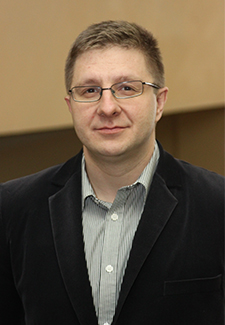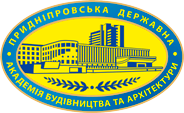Scientific profile

Associate Professor, Candidate of Technical Sciences (Ph. D.)
Mykola
NECHYTAILO
Contacts and CV
Research
Current research
«Enhancement of the efficiency of water supply and sewage systems, as well as small water objects» (0121U100400)
More
Past research
«Improvement of water supply and disposal systems operation, as well as methods for calculating the foundations and structures of water supply and hydrotechnical facilities» (0116U000779).
More
Publications
1. Nechytailo N. , Olena Nahorna, Yevhenii Kosiuk Defining the effect of the chemical concentration and solution pH on membrane chemical cleaning process / E3S Web of Conferences: International Conference Essays of Mining Science and Practice. 109, 00061 (2019) 09 July 2019, 7 p. DOI: https://doi.org/10.1051/e3sconf/201910900061 (Indexed in Scopus, CAS, Thomson Reuters, DOAJ, EBESCO, ProQuest).
2. Нечитайло Н.П., Нагорная Е.К., Нестерова Е.В., Шарков В.В. Математическое моделирование процессов массопереноса при ультрафильтрации воды / Вісник Придніпровської державної академії будівництва та архітектури. Дніпро: ПДАБА, 2019. Вип. 2. С. 48 – 56. DOI: https://doi.org/10.30838/J.BPSACEA.2312.280519.47.435
3. Нечитайло Н. П. Экспериментальное исследование химической промывки мембран ультрафильтрации при очистки вод поверхностных источников водоснабжения – часть 1 / Н.П. Нечитайло, Е. К.Нагорная // Znanstvena misel journal, Ljubljana, Slovenia, 2019. – №28. – Vol. 1. – Р. 52-56.
4. Nechytailo М. The grounds for the modification of membranes with the help of quantum mechanical calculation method / M. Nechytailo, O. Nahorna, O. Nesterova // E3S Web of Conferences: II International Conference Essays of Mining Science and Practice. 168, 00032 (2020) 06 May 2020, 11 p. DOI:
https://doi.org/10.1051/e3sconf/202016800032 (Indexed in Scopus).
5. Нечитайло М. П., Нагорна О. К., Нестерова О. В. Основні фактори, що призводять до зниження надійності роботи оборотних систем охолодження Український журнал будівництва та архітектури. Дніпро: ПДАБА, 2021. №. 6 (006). С.62-68. DOI: https://doi.org/10.30838/J.BPSACEA.2312.281221.62.815
Courses
1. Construction and equipment of external sewer networks
This discipline focuses on the study of the arrangement of sewer networks. This course is a practical course in the design of external sewer networks. By studying this discipline, students will acquire sufficient knowledge for designing sewer networks, as well as theoretical knowledge of the construction of sewer networks and facilities, as well as the peculiarities of operating gravity sewer networks in cities and industrial enterprises.
2. Technological regulation of water supply and water disposal systems
This discipline focuses on the study of modern regulations in water supply and water disposal systems. By studying this discipline, students will gain skills and knowledge in frequency regulation, selection of hydrocompensators, and regulation of systems using microcontrollers.
3. Specialized systems and technologies for water supply and water disposal
This discipline focuses on the study of modern specialized systems and technologies for water supply and sewerage, both in industrial and civil construction applications. Students will acquire in-depth knowledge of the use of contemporary methods and techniques for the calculation, design, and operation of specialized systems.
4. Water treatment in revrse water supply systems
This discipline focuses on the study of modern methods for quality control of water treatment in reverse water systems, prediction of cooling system performance, and calculation of reliable operation in scale-free, anticorrosive, and trouble-free modes. Students will explore contemporary technical solutions, calculation methodologies, and control tools that can be used in industrial settings.
5. Membrane-based technologies in the purification of natural and wastewaters
This discipline aims to provide experience in improving drinking water purification technologies. The analysis of modern water purification methods indicates that traditional technologies such as coagulation, sedimentation, ion exchange, and oxidation are often ineffective in dealing with contemporary anthropogenic impacts. Therefore, it is necessary to consider the increased requirements for the quality of drinking and process water treatment. Moreover, the existing methods of water preparation themselves contribute to environmental pollution, highlighting the need to address the issues of sediment and brine disposal.
